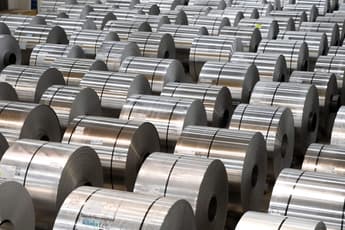From cans, foil and kitchen utensils to beer kegs and aeroplane parts, aluminium is among the world’s most widely used metals. Produced en masse globally, the metal accounted for around 3% of the world’s direct industrial carbon dioxide (CO2)emissions in 20221.
Produced through extremely energy-intensive processes, aluminium’s carbon footprint is primarily attributed to the smelting stage which sees aluminium oxide reduced to the usable material.
However, its primary production has been declining. Today, it is one of the most recycled materials, with approximately 75% of aluminium still in circulation2 (secondary). Recycling rates for aluminium in the automotive and building industrial markets exceed 90%. Through recycling aluminium, 95% of the energy needed to manufacture new material is saved.
... to continue reading you must be subscribed






